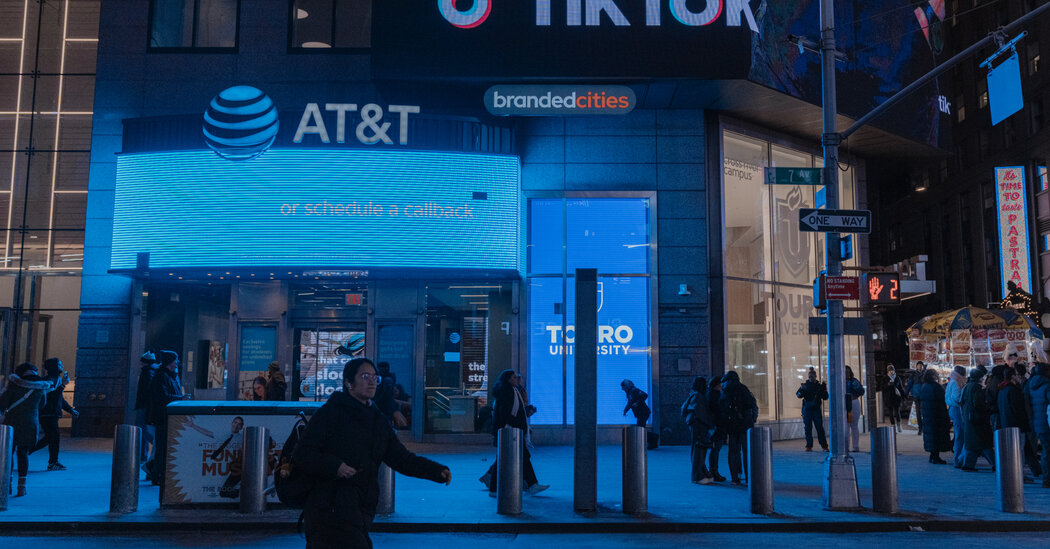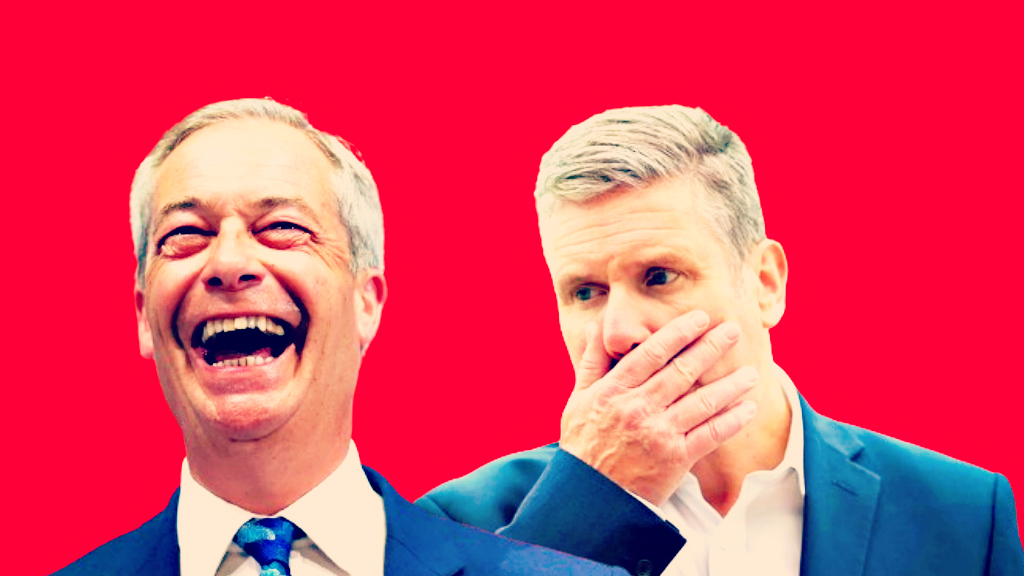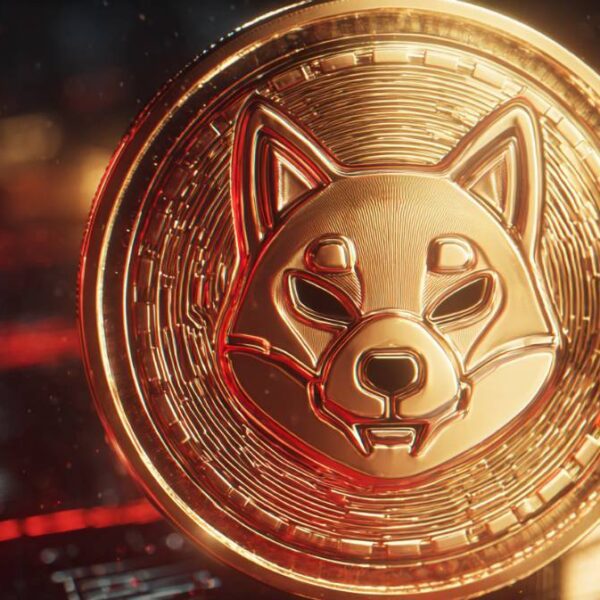There’s a new parlor game on Wall Street: guessing TikTok’s next owner.
President Trump signed an executive order in January that delayed enforcement of a law that banned the popular video app. Under the order, the app must now be sold to a non-Chinese owner by early April.
Since he signed the order, Mr. Trump has dropped a flurry of sometimes conflicting hints about how the next several weeks could play out: He has suggested he wants a bidding war; he has said the United States should own part of the app; he has named Microsoft and Elon Musk as potential buyers, even as others have raised their hands.
But the mechanics of a potential sale are still murky.
ByteDance, TikTok’s owner, has said for years that it cannot sell the app, in part because the Chinese government would not allow the export of its all-important algorithm.
And it’s not clear TikTok’s American investors are interested in a sale, either.
“There are a number of alternatives we can talk to President Trump and his team about that are short of selling the company that allow the company to continue to operate, maybe with a change of control of some kind, but short of having to sell,” Bill Ford, chief executive of General Atlantic, told CNBC. General Atlantic, a private equity firm, is an investor in ByteDance.
Here is what we know about what happens next:
Who wants to buy TikTok?
Mr. Trump has floated a number of names in public recently, including Mr. Musk, Microsoft and Oracle. In 2020, Microsoft, Oracle and Walmart tried to buy TikTok before those talks fell apart.
Other potential bidders include Jesse Tinsley, the founder of the payroll firm Employer.com, who has put together a consortium that includes the chief executive of Roblox, the video game platform.
The “Shark Tank” star Kevin O’Leary is part of a bid from the billionaire Frank McCourt, who has been seeking to buy TikTok without its coveted algorithm. His bankers’ valuation of $20 billion is considered to be far lower than what TikTok could fetch with its recommendation technology.
The YouTube star Mr. Beast, whose real name is Jimmy Donaldson, has also been in talks with “several potential bidders” to be a strategic partner in an acquisition, according to Matthew Hiltzik, a spokesman. (His role would not be to fund a purchase, as some reports have speculated.)
Mr. Musk, of course, bought Twitter, now called X, in 2022. And the Chinese government may be more willing to sell to him, given the ample business Tesla does in China. But the billionaire has not commented on whether he wants to buy TikTok.
Microsoft declined to comment. Oracle and Mr. Musk did not respond to a request for comment.
TikTok and ByteDance have not commented on whether they are engaged in sale talks.
Who will lead negotiations for a deal and why?
Mr. Trump is holding court on deal talks, and it is unlikely that anyone tries to strike a deal without a fair degree of confidence he would support a transaction. Mr. Ford of General Atlantic said at Davos that he would be negotiating with Mr. Trump and Treasury Secretary Scott Bessent, who leads the interagency panel that reviews deals for national security concerns.
Mr. Ford said Mr. Bessent and ByteDance’s board and management would be a part of the talks, and described his firm as “ready to engage.”
It will also be important for dealmakers to feel confident they have support from the Chinese government. China has resisted relinquishing control of TikTok. It updated its export control rules in 2020, allowing it to block the export of the algorithm that is key to making TikTok work. While some potential buyers, like Mr. McCourt, have said they want to buy TikTok without the algorithm, they would be buying a significantly diminished product.
What has Trump said about what he wants?
Any deal will need Mr. Trump’s approval, and he has said he is eager to get one done. He told reporters last month that there had been “a lot of interest” in TikTok.
He has outlined the contours of the kind of deal he wants to strike: “What I’m thinking about saying to somebody is buy it and give half to the United States of America,” he said.
On Monday, Mr. Trump also signed an executive order aimed at creating a U.S. sovereign wealth fund, and suggested the fund could be a potential investor in the deal with TikTok.
It is unclear, though, whether such a structure would solve the national security concerns that led Congress to pass the law, which include fears that ByteDance could hand over sensitive TikTok user data to the Chinese government, or that Beijing could use the app to spread propaganda. It is also unclear in what form the United States could become an investor.
The law makes it illegal for companies to update or distribute TikTok in the United States unless there is a “qualified divestiture” of the app from ByteDance. It specifically says TikTok can’t maintain an operational relationship with any Chinese-owned or Chinese-controlled company.
What have investors said?
The law says TikTok can no longer be controlled by a Chinese company or rely on a Chinese company for its recommendation algorithm or for data sharing.
But as the comments from Mr. Ford of General Atlantic indicate, investors are exploring options that would sidestep an outright sale. A deal forced by political pressure would most likely require them to take a steep cut on the value of their investments, analysts say.
But it is not clear that the other options, which could include bringing on new investors or having U.S. investors swap their investment in ByteDance for a stake in U.S. TikTok, would address the national security issues identified by the law. The law bars a person or people in China from holding, directly or indirectly, more than 20 percent of TikTok.
What could stand in the way of a sale?
There’s a critical question that even TikTok has raised in court filings: Can TikTok’s U.S. business operate if it is cut off from its global infrastructure? TikTok said such a sale was not “commercially, technologically or legally feasible.” That is in part because China is unlikely to allow any U.S. buyer to take over TikTok’s algorithm. It is also because much of TikTok’s technological infrastructure is housed outside the United States.
There is also the question of whether TikTok remains as desirable as it was in 2020. Large technology companies like Microsoft, which sought to buy TikTok in 2020, have since committed to spending billions on the race for artificial intelligence. A TikTok acquisition, then, would be a significant change in strategy, according to analysts.
Buying any social media company is often a tricky proposition, given how quickly it can fall out of favor. Snap, once extremely popular among teenagers, now trades for below the price it sold for in its initial public offering in 2017 — an example of how drastically teenagers, and investors, can turn.
Buying TikTok would also be expensive, making it a purchase only a handful of companies could make on their own. And those that are large enough to do so, like Google and Meta, would probably face antitrust scrutiny if they bought the app.
Will TikTok be the same if it sells?
We don’t know. A sale might solve TikTok’s legal problems, but it could also change the app that users know today.
Some TikTok users have suggested in the past that, in the same way X transformed under Mr. Musk’s ownership, TikTok could change under a new leader. In the case of X, many users and advertisers fled the app.















